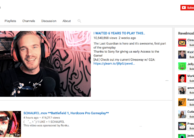Media Discourse During the Financial Crisis: An Inquiry into the Nature of the Contemporary "Fourth Estate"A Year in Discourse: October 2008 to September 2009Three cognitive frames were identified from our data sample, offering competing interpretations of the 2008 financial crisis. Affecting an agent- centred constructivist approach, these frames are interpreted as creations of our norm entrepreneurs, which are pitted against one another in a persuasive battle, helping the public to rationalise what has happened. As constructivists interpret these norm shifts as the main vehicles for societal change, our period under study is interpreted as a discursive window where established norms are reviewed and challenged by new frames, or ways of thinking, a persuasive process which can affect material change in society.90 Our three frames identified during this persuasive process have been labelled as: an established “Neoliberal Frame” offering support for our political economic doctrine; an “Adjustment Frame” calling for subtle amendments to the economic system, predominantly through regulation; and a “Rejection Frame” characterised by heavy criticism of neoliberalism and calling for a change to the current economic model. The presence of our Neoliberal Frame was indicated by four recurring themes interpreting the crisis, they were coded: (a) Correction: Government intervention to save the banking system is simply viewed in economic terms as a “correction” of a market failures. This correction has normalised the financial system and requires no further interference.91 (b) Business Cycle: capitalism, underpinned by neoliberalism, affects a perennial cycle of fluctuations between economic expansion and contraction. The latest crisis is interpreted in these terms, disregarded as nothing more than part of capitalisms natural business cycle. (c) Bankers Liability: All responsibility for the crisis is levelled at the unethical behaviour of bankers. (d) Government Liability: All responsibility for the crisis is placed upon the Government.All our Neoliberal themes share one similar characteristic: complete omission of any criticism or culpability directed towards the current economic system. This is particularly evident in themes (c) and (d) which direct attention away from economics, holding bankers and the Government to account for the crisis. Immediately, we can see in the very constitution of the Neoliberal Frame a mobilisation of bias, where all criticism of neoliberalism is completely omitted from the discourse, and therefore directing public attention away from any acknowledgement of an economic problem. In this frame we can see power being exercised through the suppression of criticism which may be considered dangerous or “unsafe,”92 to the sponsors behind the frame. Our “Adjustment Frame” accepts there exists inherent problems with neoliberalism which have been exposed by the financial crisis and need fixed; this frame prescribes remedies, predominantly more regulation, to repair the neoliberal model. The Adjustment Frame is indicated by three themes within the discourse: (a) Regulation of Financial Markets: The financial system needs to be more efficiently regulated; (b) Wider Regulation and Oversight: Heavier regulation is required to repair the economic system; (c) The System Needs Tweaked: Other forms of adjustment are needed to facilitate the functioning of the free-markets. The Adjustment Frame distinguishes itself from the Neoliberal Frame as it accepts there are inherent problems with the current system; it supports neoliberalism by proposing these problems can be solved by slight adjustments that will, as Robert Halsall observes, “re-normalise the existing system.”93 Instead of questioning the nature of our economic system, this frame limits discussion to resolving slight problems within it.94 This Frame is an exemplar of how the framing process can subtly direct attention away from certain issues and condition peoples’ understanding of events. Once more a mobilisation of bias is present as discussion of the economic crisis is restricted to safe issues solely concerned with maintaining the current economic system. Both the Adjustment and Neoliberal Frames form what Entman calls a “culture,” what he defines as, “the empirically demonstrable set of common frames exhibited in the discourse and thinking of most people in a social grouping.”95 The “common” factor between these two frames is their legitimisation and support of our internalised norm, neoliberalism. This culture, together representing the majority of frames within the discourse, can be interpreted as a demonstration of Normative Hegemony, where norms that are beneficial to the commercial interests of society are promoted through the public sanctioning of frames. Like Adjustment, our third and final frame burst into public discourse through the exogenous shock of the financial crisis. The Rejection Frame stands as a direct challenge to our well established Neoliberal Frame, which before this economic shock was such a deeply internalised norm it achieved a taken for granted status in discourse and was rarely questioned in society. Unlike the others our Rejection Frame looks to de-legitimise neoliberalism, directly challenging our economic orthodoxy. As part of the persuasive process it offers a departure from this prevailing orthodoxy, interpreting the financial crisis as a product of the inherent contradictions of neoliberalism, which cannot be patched over or ignored any longer and suggests alternate courses of action. From a constructivist approach, if this frame is successful in establishing itself in mainstream discourse, or becomes the dominant interpretation of the crisis, it could precipitate material change in society. Our Rejection Frame’s presence is indicated by three themes: (a) A Critique of Neoliberalism: a diatribe of the current economic system, which is held liable for the crisis, and frequently articulated as a defunct economic doctrine; (b) Public Ownership: Influenced by the unprecedented part nationalisation of major banking institutions in the UK, this theme calls for Keynesian public ownership of banks and other institutions which are in control of public goods; (c) State Intervention: Another Keynesian approach soliciting greater government intervention in the market economy, to re-embed it within society. Our Rejection Frame constitutes a direct discursive challenge to the normative hegemony enjoyed by neoliberalism. Effectively, this Frame represents a more Keynesian approach to economics, which like neoliberalism, was a deeply internalised norm in post-war Britain until the 1980s and somewhat ironically now, can be interpreted as a product of the last great economic crisis, the Great Depression, which radically altered western economic ontology.96 Affecting an agent-centred constructivist approach to our analysis, the Rejection Frame represents the emergence (or indeed re-emergence) of a norm which if successful in the persuasive battle, could precipitate real socio-economic change in society. The authors of these frames, our opinion writers and editorial boards, which communications experts interpret as representing society’s elite opinion which influences public opinion,97 will be interpreted as what Finnemore and Sikkink call “norm entrepreneurs,” our proselytes engaging in a discursive battle to make sense of the crisis.98 A Year in DiscourseOur proselytes had a busy year. Over the 21 days of discourse sampled, 492 articles were published between the three papers, 137 (27.84%) of which covered the financial crisis. Almost one third of our elite media opinion concerned itself with the crisis, which, although reflecting a substantial amount of discourse, could still be regarded as relatively low given the severity of the crisis under examination. All our publications devoted similar attention to the economy with The Guardian coverage accounting for 30.49% of its discourse, The Times 27.22% and The Sun 24.39%. From the 137 articles concerned with the financial crisis, 116 contained one of our three frames. This means 84.67% of discourse relating to the financial crisis was guiding audience interpretations of the episode, demonstrating to us the power of the fourth estate in influencing our understanding of events. Sources of elite opinion, excluding regular columnists and editors, largely reflected the traditional political posturing of our publications under examination. The Guardian was more likely to use left wing sources (accounting for 77.78% of all left wing sources cited) and The Times more likely to lean to the right (drawing upon 58.33% of all right wing sources). Both broadsheets relied upon a similar amount of political opinion (the Guardian 44.44% and The Times 56.56%), however the Guardian drew more heavily from expert opinion (economists and academics), accounting for almost 3/4 (72.73%) of expert contribution to the persuasive process. From the 116 frames examined, our Neoliberal Frame was the most ubiquitous, identified 65 times and accounting for 56.03% of all frames from our sample period. The Adjustment frame was cited 27 times (23.7%) and our Rejection frame cited 24 times (20.69%). From this macro perspective of the year’s discourse we can see the internalised norm maintaining dominance in the persuasive contest, with the neoliberal frame accounting for over double that of any other. Furthermore, if coupled with the Adjustment Frame, as they constitute a culture of frames legitimising neoliberalism, they account for the majority (92) of frames or 79.31% of the discourse (see Table 1, page 48). These preliminary figures already intimate that a degree of public sanctioning is at play, where despite such condemning events, agreeable norms are en-forced at the expense of others; and a mobilisation of bias being exerted through both the suppression of frames that challenge these beneficial norms; and at 27.84%, a considerably low level of discussion on the financial crisis, given the magnitude of the situation. When we analyse the correlation between these frames and newspaper publications, the traditional political allegiances fabled in the UK press becomes apparent. The commercially owned broadsheet, The Times, consistently sanctioned our internalised norm by dedicating 81.82% of its Frames to promoting the benefits of neoliberalism. The other 18.18% of its discourse accounted for the Adjustment Frame. When these two interpretations are combined as a culture of frames legitimising neoliberalism, we see The Times dedicated 100% of its discourse to supporting this deeply internalised norm. The Sun’s engagement in public sanctioning is less surprising or subtle, demonstrating even more loyalty to neoliberalism, which as the only frame evoked, accounted for all of its cognitive frames and was the only interpretation offered by the most circulated newspaper publication in the UK. Accumulatively, the commercially operated publications owned by News Corporation accounted for 83.07% of the public sanctioning of the neoliberal frame, in contrast to our not-for-profit Guardian which only accounted for 16.93%. Which suggests that commercial outlets are more likely exercise their normative hegemony, sanctioning norms more beneficial to their business interests. Unsurprisingly, the Guardian, owned by a trust to preserve its “journalistic freedom and liberal values,” displays a similar partisan loyalty.99 The most frequently evoked interpretation by this publication is the Rejection Frame, accounting for 44.44% of the newspaper’s discourse, although the Adjustment Frame is posited a close second at 35.18% and the Neoliberal Frame deployed to interpret the unfolding events only 20.37% of the time. The Guardian discourse therefore accounts for 100% of our challenging norms sponsorship, being the only publication to publically sanction any real critique of neoliberalism and challenge the economic orthodoxy of our internalised norm. Even so, as our two neoliberal frames can form a culture, collectively legitimising the political economic doctrine, together they account for 55.55% of Guardian frames over the year. Although less acute than our profit orientated commercial enterprises, the public sanctioning of neoliberalism still dominates, if only slightly, the publications discourse. Through this brief overview of the year it is clear which frames have dominated the discourse; and therefore the publics’ interpretations of the crisis. A tentative explanation of how the financial crisis did not precipitate any real societal change as many commentators had expected can still be offered at such an early stage. Society’s internalised norm, neoliberalism, has dominated commentary of the financial crisis, as a culture accumulatively 79.31% of elite media opinion legitimises neoliberalism through its interpretation of the crisis. When interpreted as public sanctioning of beneficial norms, these figures tentatively suggest that a degree of normative hegemony is being exercised by the media where norms beneficial to their commercial interests, norms which will facilitate the fourth estates functioning as a business, are being sanctioned. Furthermore, given that the overwhelming majority of discourse (79.31%) concerned itself with how to retain the present economic system, suggests a mobilisation of bias where our persuasive process, our discursive vehicle of change in society, has restricted discussion to a choice between neoliberalism or neoliberalism plus regulation. Given the limited amount of data cited this line of argument may appear rather fragile. When we break down these figures, by following the evolution of the discourse throughout the most eventful year of the financial crisis, our results become far more revealing. Time Period 1Wednesday 8th October – Wednesday 15th October 2008 This week is probably the most eventful of the entire crisis. It witnessed a run on UK Banks, two stock market collapses, the nationalisation of major financial institutions and culminated in a Group of 7 meeting attempting to arrest economic meltdown.100 This window offers us a snapshot of media discourse during a critical moment in history where many economists genuinely believed that the events of October 2008 marked the terminal phase of the neoliberal project.101 All our windows under analysis will be interpreted through an agent-centred constructivist lens where these events, equated by many with the fall of the Berlin Wall,102 are interpreted as a moment for potential change, where new norms can emerge and challenge existing dogmas. This week is the beginning of our persuasive process, where different actors, our norm entrepreneurs, frame the event in different ways, offering contesting interpretations and remedies which will shape society’s response to the economic catastrophe it faces.103 Such an eventful week was reflected by the amount of discourse concerned with the economic melodrama with over half the discourse, 92/176 articles (52.2%), devoted to the unfolding economic events. 76 of these articles possessed one of our frames, therefore 82.61% of coverage was subtly guiding the public’s understanding of what was happening. The Guardian covered the story the most with 48/73 articles (65.5%) concerning the economic crisis; The Times dedicated 29/76 articles (38.16%) and in the Sun a surprising 15/27 articles (55.56%) covered the crisis. The comparative silence of The Times may reflect the seismic nature of events where the broadsheet considered the bastion of conservatism, did not know how to react given the empirical threat the crisis heralded for a norm it had nurtured and embraced for three decades. The publication’s comparatively muted coverage indicates a slight mobilisation of bias where unpalatable stories which pose a threat to the papers reputation are avoided. External sources of elite opinion used to offer interpretations of the week’s events are also a source of interest, the cataclysmic shock seems to have precipitated a broadsheet retreat to their traditional ideological positions. The Times accounts for 71.43% of all right –wing sources cited and The Guardian accounts for 83.33% of all left-wing sources. The Guardian also relied far more heavily on expert opinion accounting for 78.57% of academic and economists’ opinion. This reticence of The Times to use expert opinion and rely much more heavily on ideologically grounded sources further supports the notion that both a mobilisation of bias and public sanctioning is being used to insulate their norm from the rising discursive temperature. We can see the discourse reaching boiling point when we analyse the cognitive frames being deployed to rationalise what is happening. The interpretation of unfolding events demonstrates a genuine discursive challenge to the established economic orthodoxy. 34/76 Frames (44.74%) were new interpretations of the economic situation, even if some only slightly deviated from the unquestioned neoliberal norm. If the blind allegiance of the Sun is removed from the equation, new frames account for 53.97% of the discourse, reflecting how this unprecedented financial collapse had sparked a new persuasive struggle, a re-evaluation of the orthodox economic model, a discursive process with the power to alter societal perceptions. As historical examples like the great depression have demonstrated, such persuasive struggles can affect real socio-economic change in society. The Neoliberal Frame was still the most commonly evoked throughout the week accounting for 42/76 or 55.12% of the Frames. The Times was the internalised norm’s biggest sponsor accounting for 52.38% of all the Neoliberal Frames evoked, compared with The Sun at 30.95% and the Guardian at 16.67%. We must remind ourselves that before the crisis this norm would have not been challenged at all in economic discourse. The most popular theme for this frame was (d) Government liability which accounted for 38.64% of the Neoliberal Frame, closely followed by (a) Correction on 29.54%. This Frame is epitomised by an unsigned editorial in The Times on Tuesday 14/10/08 offering unconditional support for our besieged norm, “The pursuit of profit by privately owned businesses is still the best method yet devised to create wealth and opportunity for the many. Capitalism has lifted hundreds of millions of people out of poverty and has provided unprecedented choice, material and intellectual.”104 This economic ontology was attacked by the genesis of a new frame presenting a direct challenge to mainstream economic thought and when interpreted as what Finnemore and Sikkink call an emerging norm, possessed the potential to affect real political change.105 Our Rejection Frame is a product of the financial crisis, preached by a variety of proselytes, our norm entrepreneurs who motivated by this external shock under examination began to expose the inherent contradictions of neoliberalism and suggest alternatives. Guardian columnist George Monbiot highlights these contradictions in another article on Tuesday 14/10/08, demonstrating the conflicting interpretations of neoliberalism being articulated to the public by our proselytes, “If fish in a depleted eco-system grow by 5% a year and the catch expands by 10% a year the fishery will collapse. If the global economy keeps growing at 3% a year (or 1,700% a century), it too will hit the wall.”106 Re-evaluations like this represented 21 of our 76 frames or 27.63% of discourse, with the most popular theme cited above as (a) A Critique of Neoliberalism accounting for 42.42% of themes. During this discursive snapshot, almost a third of our discourse directly challenged our internalised norm. If we remove our tabloid under analysis and compare only the broadsheets, The Rejection Frame accounts for exactly one third of discourse at 33.33%, and our deeply internalised norm, the Neoliberal Frame, is reduced to 46.03%. This radical reaction to events, a frame proposing major changes to the way society is organised both socially and economically, is only posited by one paper. The Guardian is the sole proprietor of this challenging norm, accounting 100% of the 21 frames. Demonstrating once more how, amongst the commercially owned papers, any discussion of topics which reject neoliberalism is considered un-newsworthy. Given the reach of commercially owned publications like The Sun, this mobilisation of bias can have massive implications on the success or failure of our emerging norm. Although the Guardian accounts for 100% of the Rejection frame posited in the discourse, it also offers a broader range of opinions accounting for 16.67% of the Neoliberal Frame and over three quarters (76.92%,) of the Adjustment Frame which although legitimising Neoliberalism accepts its fallibilities. The Adjustment frame accounts overall for 17.1% of the frames evoked in our first week, and is posited by both the Guardian (76.92%) and The Times (23.08%). Given its support by contrasting publications it represents another emerging frame that could affect some, if not radical, change in society. The most cited theme indicating the presence of this frame is (b) Wider Regulation and Oversight, which was cited 44.44% of the time. A good example of this this frame is offered by Guardian columnist Simon Jenkins who presciently states on Wednesday 15/10/08, “Guardian writers and Labour politicians have been drooling all week over what they call the ‘collapse of the free-market model’ of a modern global economy. They are simply wrong. All markets required regulating. It was regulation that failed last month.”107 The emergence of yet another new frame reflects the severity of the event, where three rival interpretations of the situation are beginning to compete for dominance in a persuasive process which liberal democratic societies embark upon to decide what course of action to take. As Finnemore and Sikkink illustrate, “new norms never enter a normative vacuum but instead emerge in a highly contested normative space where they must compete with other norms and perceptions of interest.”108 As, for constructivists, norm shifts are the main vehicles of change,109 our week under study will be interpreted as the beginning of a persuasive process where competing notions of what to do are expressed; our new norms have begun what Finnemore and Sikkink call “The Norm Life Cycle,” where emerging norms precipitated by major events, if successful, can become established ways of thinking and internalise themselves within societies.110 Time Period 2Monday 30th March – Monday 6th April 2009 Our next window takes a discursive snapshot of the financial crisis six months after the global economic system seemed to teeter on the edge of the abyss. It also covers the second meeting of advanced economic nations, the G20 on April 2nd, which was billed as the moment world leaders would repair the traumatised economic system with their spiritual leader, Prime Minister Gordon Brown, announcing the end of “the old Washington Consensus.”111 In reality they agreed in principle for more financial regulation.112 The difference in the volume of discourse from our initial window is striking. Only 33/146 published articles, a meagre 22.6%, are concerned with the economy. All publications under analysis appear to demonstrate a similar lack of interest in the financial crisis, which is still very much unresolved. The Guardian dedicates 22.05% of its discourse, The Times 24.07%, and The Sun 20.83%. 90.9% of these articles contained one of our frames. Over our six month period, coverage of the economy has dropped by over half from 52.27% to 22.6%. Although this week did not contain the same amount of drama or events, hooks that cue coverage, this still represents a dramatic decline. One could tentatively suggest this reduction was also in part influenced by a notion that the worst of the crisis was over and no further “reconstitutive” deliberations were necessary. With the drama over, discussion of the problem, the failing economy, which was far from resolved, is already becoming a sideshow, accounting for just over a fifth of elite opinion. These figures demonstrate how our discursive process is already being severely silenced and can be interpreted as a clear mobilisation of bias: where the suppression of discourse negates rational critical debate about the economy, and from our theoretical perspective can be viewed as a form of censorship, where injurious topics unpalatable to the media’s commercial interests are muted, severely restricting the democratic process and distorting the public sphere. This diminution of discourse is mirrored in the frames evoked. Our Rejection Frame which represented our emerging norm and seemed, six months ago, to be the biggest discursive challenge to neoliberalism since its inception in the 1980s, has almost vanished. It is evoked in The Guardian only three times, collectively representing 3/33 of all frames or 10% of the discourse. This departure from the beginning of our timeframe suggests the Guardian is no longer willing to sanction the emerging norm, which is being rejected by the persuasive process. This rejection of our challenging norm could also reflect the empirically acknowledged self-perpetuating quality of frames, where opinions which deviate from established frames are given less publicity, arresting the exposure of emerging norms and stopping them taking root in public opinion. As our challenging norm, which directly questions the status quo seems to be have been side-lined from mainstream discourse, the fortunes of our other norm which emerged from the financial crisis has also witnessed a radical change. Our Adjustment Frame appears to have replaced the Rejection Frame, over six months transforming itself from a minority opinion to rivalling that of our internalised norm. Our Adjustment Frame has increased from 17.1% to 40% of all Frames posited, an increase of 22.9% and now is directly challenging our Neoliberal Frame which still dominates the discourse accounting for 50% of all Frames. This shift seems to have occurred due to both The Guardian and The Times moderating their tone and moving into a discursive centre ground between the polarised positions of unconditional support or rejection of neoliberalism. The Times reduced its sponsorship of the Neoliberal frame from 88-58%, whilst increasing its support for the Adjustment frame from 12-38.46%. Similarly, the Guardian reduced its backing of the Rejection frame from 55.26-23.28% whilst increasing its support for Adjustment from 26.32% to 53.85%. If we remove the Sun and its religious adherence to neoliberalism, the Adjustment Frame now dominates our discourse comprising 48% of frames to Neoliberalism’s 40%. Another explanation for this frame’s ascendency could be the main focus and news peg of the week, the G20, whose agenda mirrored our Adjustment Frame theme (a) Regulation of Financial Markets; which is now the frame’s most popular theme cited at 54.54%, overtaking theme (b)’s more hard line approach of wider regulation and oversight, which dominated in our first window of analysis. These figures reflect a significant change in the persuasive process where the hard line rhetoric and sanctioning of unorthodox norms has witnessed a significant reduction. A new norm which still embraces neoliberalism has been promoted by publications on both sides of the political spectrum, embracing limited regulation and deviating only slightly from the status quo; whilst the only norm to challenge the prevailing economic orthodoxy appears to have been rejected from the discourse. In terms of our life-cycle it appears to have collapsed at the first hurdle, unable to reach a crucial tipping point and cascade necessary for the norm to achieve broad acceptance in society.113 These findings corroborate with Robert Halsall’s comparison of UK and German press coverage during the crisis, where after initial criticism, media discourse begins to narrow the focus of discussion, concentrating on how to maintain rather than revise the current economic system.114 Analysis of our second discursive snapshot of the financial crisis demonstrates a developing mobilisation of bias where the persuasive process and options available to society appear to have been significantly reduced: interpretations of what has happened and what should be done have been dramatically shifted from our initial window. Through the suppression of our Rejection frame and public sanctioning of norms which legitimise neoliberalism, we can see a dramatic restriction of options discussed by the fourth estate. This shift can also be interpreted as an exercise in normative hegemony where only norms beneficial to commercial interests in society are now being voiced by the fourth estate, perverting the persuasive process and distorting society’s natural reaction to exogenous shock of the financial crisis. When we review or third window of analysis this development becomes even more profound. Time Period 3Monday 21st - Monday 28th September 2009 Our final window allows us to examine how the discourse has evolved over the year, six months on from our last snapshot and 12 months since the state was forced to intervene in the failing financial markets; where our internalised norm, neoliberalism, seemed to have expired. The main discursive event, our news peg, is the third and final economic summit, the G20, which agreed to develop a framework to assist growth, reform the IMF and World Bank; and as the leader’s statement from the Pittsburgh summit states, “make sure our regulatory system for banks and other financial systems reins in the excesses that led to the crisis.”115 Another interesting feature of our final discursive snapshot is the amount of rival news pegs which are competing for media attention. Other global events of high media interest this week include: A range of UN summits: a climate change summit, a General Assembly, and a Security Council meeting on nuclear disarmament.116 This week Bournemouth hosts the Liberal Democrat Conference and the Labour Party Conference begins towards the end of our window.117 The volume of discourse during our final week of study continues its downward trend illustrating a shocking level of interest in the global economy. Out of 170 articles published by our three publications only 12 are concerned with the economy. The global financial crisis only accounted for an astonishing 7.06% of elite discourse during our final window of analysis. This marks a dramatic decline from the 52.27% covered in week one and demonstrates how apathetic the media has become toward the story. The Guardian published only 5 articles (6.09% of its elite opinion), The Times 7 (12.28%) whilst The Sun featured 0 out of 31. When compared with coverage of other events this week, the level of apathy becomes apparent: coverage of the UN summits accounted for 10% of discourse and domestic politics 20%; demonstrating how the economy, however fragile, has become a minor news story. What does this significant reduction in coverage mean? The financial situation had changed very little from the beginning of our period. The economy was still in arrest. Major financial institutions were still in public ownership, with record low base rates, and quantitative easing keeping the financial system on life-support. Yet our editorial boards and commentators, society’s proselytes, our norm entrepreneurs of elite opinion designed to influence mass opinion,118 seem to have completely lost interest in the story. Our persuasive process appears to have been completely suffocated. Given the relatively little change in the precarious economic climate throughout our sample period these figures once again demonstrate a clear mobilisation of bias. With discussion of the economy declining throughout our periods of analysis from a high of 52.27%, dropping to 22.60% and after twelve months becoming a minority issue at 7.06% (see Table 2, page 48). These figures illustrate an incremental suffocation of discourse which has arrested the persuasive process designed to affect change in society. Interpreted through such a theoretical lens a mobilisation of bias appears to be severely retarding the democratic persuasive process where, over our period of analysis, the economy has progressively become a toxic and unpalatable issue of discussion for the media, as it began to produce norms that challenged the current economic system. In our third window of analysis the media has not only side-lined economic discourse but the framing pattern of the crisis has changed dramatically once more. After only six months our Neoliberal Frame has not only reasserted itself but is now completely dominating discourse on a level unseen previously in this study. It now accounts for a truly hegemonic 80% of all frames posited. The Adjustment frame which reflected the mood of the last G20 summit, and questioned the infallibility of our internalised norm, has completely fallen away, accounting for the other 20% of frames evoked. Our Rejection Frame has been completely removed from the discourse. These figures intimate a radical development where both challenging norms have been rejected by our publications. Conversely, neoliberalism, a norm which was the focus on intense public scrutiny throughout our period, has managed to not only maintain its dominance, but in the final six months completely reassert itself as an unchallenged internalised norm. Within one year, in the middle of such an economic storm, neoliberalism has reclaimed its hegemonic position in discourse, and accounting for 80% of all frames affected, has once more assumed a normative “taken for granted” status in society (see Table 2, page 48). This frame seems to have been victorious in the discursive battle directing people’s understanding of events, becoming the dominant interpretation of what has happened and suppressing any change which could have been precipitated through different interpretations of events and acceptance of new norms. This hegemonic interpretation of the crisis is prevalent in both broadsheet publications. The Times dedicates 100% of its articles to this frame, completely abandoning its support for any economic adjustment. Although the Guardian does dedicate 75% of its articles to the challenging adjustment interpretation; the other 25% of content now supports our internalised norm. This shift reflects another interesting aspect of our year’s analysis: combined with the Guardian’s repudiation of the Rejection frame is its incremental acceptance of neoliberalism, with the newspapers support for economic orthodoxy almost doubling throughout our period from 18.42% - 33.33%. By the end of our sample period, the position of the liberal Guardian has dramatically altered from supporting our challenging norm, which rejects neoliberalism, to sanctioning the political economic doctrine in 100% of its frames, restricting discourse to only interpretations which legitimise neoliberalism, suppressing any dissenting voices and severely limiting the public’s understanding of events. Once more a partial explanation of these figures is offered by the self-reinforcing nature of frames, where dominant frames suffocate dissenting voices, which can, as Andrew Rojecki’s frame analysis of the Iraq invasion demonstrated, limit understanding of issues and create a false consciousness amongst the public.119 Without doubt this phenomenon has influenced our findings, especially the Guardian’s incremental repudiation of the rejection frame. However, a major difference is in this study, our frames were initially given a substantial amount of exposure, unlike dissenting voices in Rojecki’s study which, although popular, were never given any publicity and did not manage to manifest in the pre-war discourse as frames.120 The exogenous shock of our financial crisis was so profound it provided a window for challenging frames to bust into the discourse and achieve widespread publicity. The self-reinforcing nature of frames cannot therefore account for such a sudden collapse of solid, popular interpretations of events which appeared to be challenging our internalised norms dominance. As our norms had cemented themselves in our first window of analysis, a more convincing explanation for their sudden collapse lies with a systematic campaign of public sanctioning by the media. This application of normative hegemony, the public sanctioning of beneficial frames, ensured that both emerging norms never made it past the initial stage of their life cycle, and failed to affect any normative change in society. Any norms that challenged the status quo, any dissenting voices from our proselytes which had become established frames, seem to have been censored from the discourse through the relentless promotion of neoliberalism by the media. These findings support the conclusions of both Hartz and Halsall’s discourse studies of the financial crisis, which found through incremental media support for neoliberalism throughout the crisis, especially amongst the right-wing press, the political economic doctrine was able to reassert itself as the dominant ideology.121 Our findings suggest a discursive process where norms which are beneficial to society’s business interests are promoted at the expense of others, whilst the volume of discourse concerning the crisis has been gradually muted, severely negating the democratic process of persuasion and society’s ability to adapt to new challenges. Such distortion demonstrates our contemporary media’s inability to function as an effective fourth estate. Instead of providing a platform for rational critical debate, our findings suggest the media now acts as an arbiter over the discursive process, vetting opinion to correlate with its own narrow commercial interests.Continued on Next Page » Suggested Reading from Inquiries Journal
Inquiries Journal provides undergraduate and graduate students around the world a platform for the wide dissemination of academic work over a range of core disciplines. Representing the work of students from hundreds of institutions around the globe, Inquiries Journal's large database of academic articles is completely free. Learn more | Blog | Submit Latest in Business & Communications |




















